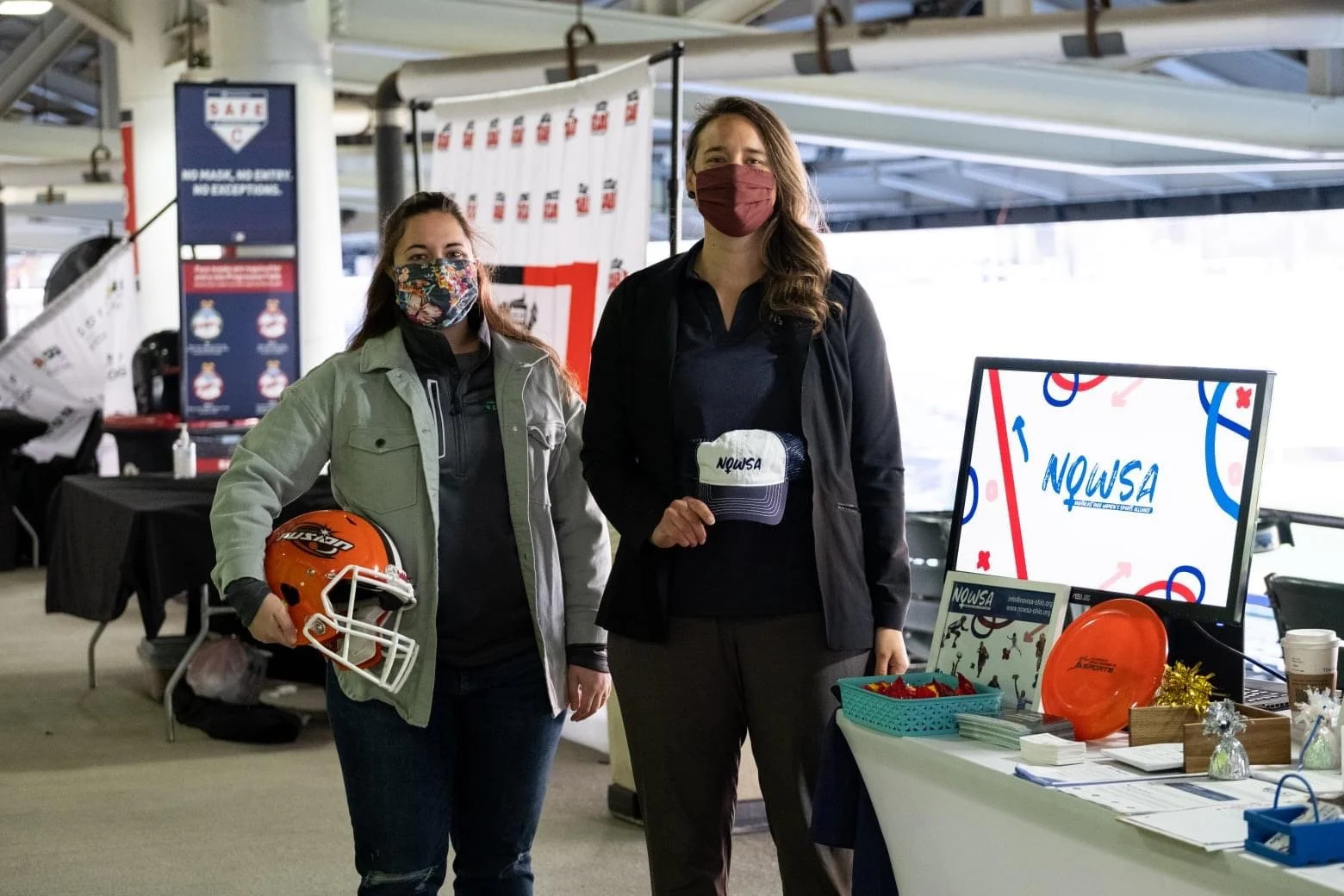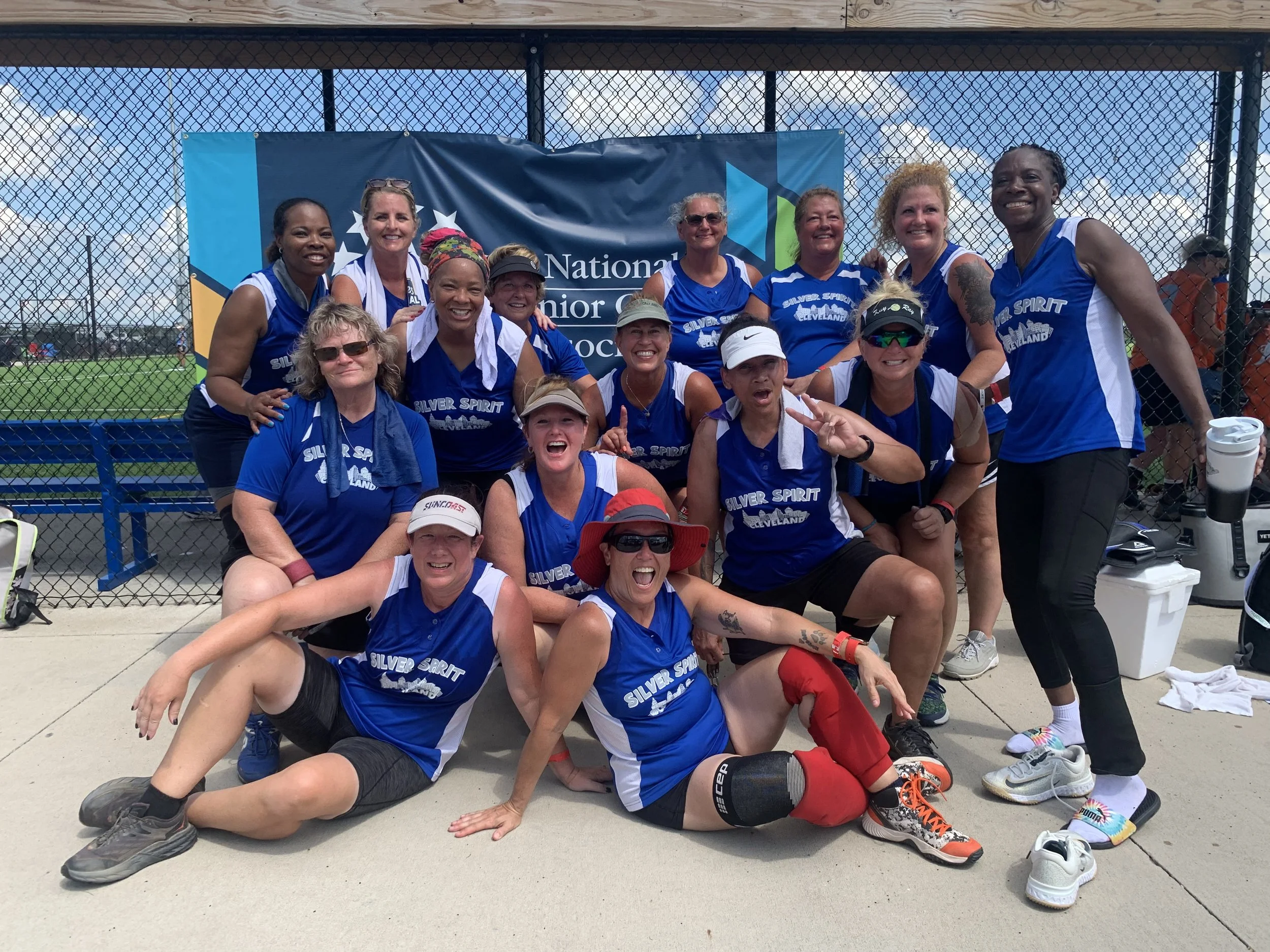5 Years of Impact: The History of Play Gap
When Barb and I submitted the paperwork to turn our two-woman efforts into a nonprofit in 2020, we were filled with a combination of uncertainty and optimism. Our prior conversations with local adult athletes and sport leaders, which began in 2018, spotlighted the shared challenges faced by women in recreational sports. Under the name “Cleveland Women’s Sports”, we met monthly and brainstormed ways that we could work together to expand awareness for the teams and minimize some of their financial and organizational challenges. Our first public initiative, a 2019 calendar sale, raised over $1000 that was divided amongst the 5 women’s teams.
We also hosted social events, created an All-Access Ticket to encourage fans to attend multiple teams’ events throughout their seasons, and then launched a 2020 calendar sale with 6 teams. We began partnerships with more women’s and co-ed sports in the region and transitioned into the new name of the “Northeast Ohio Women’s Sports Alliance”, affectionately known as NOWSA.
Our progress was suddenly halted by COVID-19, which made in-person events, practices, and games near impossible. On the macro level, we saw seasons canceled and teams fold, while witnessing the personal impact that losing an athletic outlet had on the individual. Women needed their sports community to thrive mentally, physically, emotionally, and socially. It was during this time of pause that we had tough conversations about the trajectory of our work.
The under-resourced unpaid sport leaders were already stretched thin, as they volunteered and often simultaneously played for their teams, and then worked full-time jobs and supported families. We realized that asking them to contribute extra time and money to support the collaborative was not sustainable.
The two of us, Barb Anthony and Elise Vue, decided to take on that work ourselves and build the infrastructure to support recreational women’s sports. We’d continue to partner with local women’s and co-ed sports organizations, but allow them to focus on what they do best– develop community through play.
While activities were slow for rec teams due to the pandemic, we were confident that when the world returned to normal, sports would be one of the first things people turned to for a sense of community again. The nonprofit paperwork was completed in the fall of 2020 and we got approval from the IRS in February 2021.
Since then, we’ve seen a lot of changes, while other things have stayed the same. We’ve witnessed societal shifts uplifting women’s college and professional sports and highlighting previously underrepresented sports like rugby. But trans athletes are actively under attack from legislation and institutions at all levels. And the adult women, from ages 18-80+, who play, coach, and lead sports for fun still do not get the recognition or resources they deserve. People who simply want to participate in sports don’t know where to turn.
As we’ve met folks across the country who see this same need, we’ve tried to fill the gaps. We changed our name to Play Gap to better reflect our mission and so we could respond to the call for support from organizations outside of Ohio. We are uniquely equipped with board members and volunteers across sport social work, sports administration, marketing, physical therapy and other fields with a focus on the nuanced, intersectional needs of adult women in community-based athletics.
In the last 5 years, Play Gap has worked with over 40 sports organizations across Ohio, New York, and Alabama, representing nearly 5,000 women participants. But we want to dive deeper to support these individuals and teams and reach more communities who need assistance. Without enough funding for paid staff, we have made incredible strides, but financial aid is critical to keep up the work we’re doing and increase our pace.
This is literally life-saving work. A 2020 National Health Interview Survey reported that only 20.4% of women met the recommended physical activity guidelines, with the number only decreasing with age.
What if there was a way to get more adult women active? Access to recreational sports is the answer.
Similarly, we’ve heard countless stories about how sports communities have uplifted people through grief and difficult mental health challenges. Play Gap is the only organization dedicated to this work, so we invite donors and sponsors to help us. Together, we can change the narrative that says sports are only for kids and professionals. We can remind our neighbors, sisters, aunts, moms, and even grandmothers that sports are made for everyone for their entire lives.















